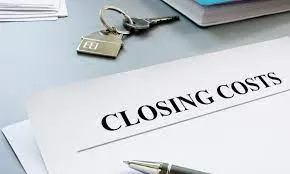
Why Closing Costs Matter—And How to Stay in Control
If you’ve been eyeing a home and crunching the numbers, you’ve probably heard it: “Closing costs will run you somewhere between 2% and 6% of the home price.”
And if you’re anything like the buyers I’ve worked with, that range feels more like a shrug than a real answer.
Let’s fix that.
You’re Not Just Paying the Price Tag—You’re Paying to Close the Deal
Closing costs are the financial fine print of homeownership. They’re the final hurdle between “we're under contract” and “here are your keys.” And while most buyers expect the down payment, closing costs can catch them off guard—especially first-timers.
These aren’t hidden fees. They’re legitimate expenses tied to services that make the home yours—title checks, appraisals, loan origination, escrow handling, and yes, even those prepaid taxes and insurance premiums. It’s a bundled set of protections and paperwork designed to transfer ownership legally and securely.
But here’s the thing: you don’t need to be blindsided by them.
So What’s in That 2% to 6% Anyway?
Let’s say you’re buying a $400,000 home. That means closing costs could range from $8,000 to $24,000—a wide swing. The final number depends on several variables:
The loan type (VA loans reduce or eliminate some fees)
Whether you’re paying discount points to lower your rate
Local taxes and transfer fees
Lender and third-party charges
Prepaids for taxes, insurance, and interest
This is where a loan officer who’s also your advocate comes in. I’ve seen buyers surprised at the closing table—and I’ve seen buyers walk in knowing every dollar before they wire it. You deserve to be the latter.
Can You Negotiate Closing Costs?
Yes—just not in the way people think.
You can’t haggle with the county on transfer taxes, but you can:
Ask the seller to contribute (especially if the home’s been sitting)
Shop your services (title companies, home insurance, etc.)
Explore lender credits that reduce upfront cost in exchange for a higher rate
Want to see what’s negotiable and what’s not? Let’s look at your specific scenario.
Don’t Let It Delay Your Dreams
I’ve watched buyers fall in love with homes only to panic at the closing cost estimate. Sometimes that fear comes from misinformation. Other times, it’s just poor preparation. But both have the same fix: clarity—like what I outlined in this step-by-step guide to buying a home.
Know the real number early in the process—not just a range.
Understand where every dollar goes—not just what you owe.
Work with someone who’ll give you a roadmap, not just a rate sheet.
Let’s Make Your Numbers Make Sense
Closing costs don’t have to be a mystery. If you want a clear breakdown of what to expect—and how to plan for it—Join us for our homebuyers' webinar on June 17th. It’s built for first-time buyers like you who want straight answers, not pressure.
Need to connect with others on the same path? Join our First-Time Homebuyers Facebook Group—a space for asking questions, sharing experiences, and getting practical advice from people who’ve been there.
Prefer to talk it out one-on-one? Book your FREE home loan consultation today and walk away with real numbers tailored to your budget—not just estimates.
Already thinking ahead? Get a competitive quote today. With access to over 50 lenders, we’ll help you find the lowest rate that fits your situation.
Prefer a simple guide you can keep? Our free Homebuyer Guide walks you through every step again—so you’re never unsure about what comes next.
Stay Connected:
Follow me on Instagram and YouTube for more tips and insights!
You can always add me on Facebook. I’m here to help you win with what you’ve earned.
